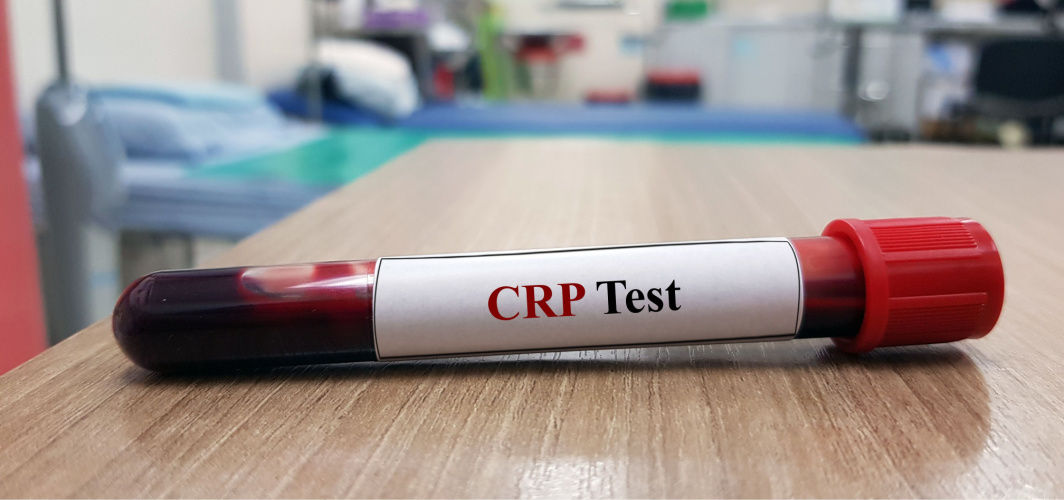General Health
Which Pathology Tests You Should Include In Routine Health Check-up?
6 min read
By Apollo 24|7, Published on - 10 October 2023
Share this article
0
0 like

Routine health checkups are crucial in maintaining overall health and detecting potential issues before they become serious. Pathology tests, also known as lab tests, are an essential component of routine check-ups. Routine pathology tests provide valuable insights into various aspects of our health. These tests help doctors assess the functioning of different body systems, identify abnormalities or diseases, and monitor the effectiveness of treatment. By including pathology tests in your routine medical checkup, you can stay proactive about your health and take necessary steps to prevent or manage any potential health issues.
Common Pathology Tests for Routine Health Check-ups
Routine health checkups that include pathology tests are essential for early detection, prevention, and management of various health conditions. Discuss your specific needs with your doctors to determine which tests suit you best.
1. Complete Blood Count (CBC)
Complete blood count is a comprehensive blood test that provides valuable information about your overall health. It measures various components of your blood, including red blood cells (RBC), white blood cells (WBC), and platelets.
RBCs carry oxygen to different parts of your body, while WBCs help fight off infections. Platelets play a role in clotting to prevent excessive bleeding. By evaluating these components, a CBC detects conditions like anaemia, infections, and blood disorders.
2. Lipid Profile
The lipid profile test measures cholesterol and triglyceride levels in your blood. High levels of cholesterol and triglycerides can increase the risk of heart disease and stroke.
Cholesterol is a waxy substance that can accumulate in your arteries, leading to blockages. Triglycerides are a type of fat that can also contribute to heart problems if elevated. Monitoring their levels allows you to take steps to maintain a healthy heart.
3. Blood Glucose Levels
Monitoring blood glucose levels is essential for detecting diabetes and managing it effectively. Diabetes is a chronic condition characterised by high blood sugar levels due to the body's inability to produce or utilise insulin properly.
There are two main types of diabetes: Type 1 and Type 2. Early detection with pathology tests is essential for timely treatment and lifestyle modifications.
4. Kidney Function Tests
Kidney function tests assess the health of your kidneys by measuring markers such as creatinine and blood urea nitrogen. These tests identify kidney and urinary tract diseases and evaluate the effectiveness of medications.
5. Liver Function Tests
Liver function tests provide insights into liver health by measuring enzymes like ALT, AST and bilirubin levels. They detect liver diseases, such as hepatitis or cirrhosis, and monitor the effects of medication on liver function.
6. Thyroid Function Tests
Thyroid function tests evaluate the thyroid gland's production of hormones such as thyroid-stimulating hormone, triiodothyronine, and thyroxine. Abnormal results can indicate an overactive or underactive thyroid.
7. Vitamin D Levels
Adequate vitamin D levels are vital for overall health. Routine pathology tests can measure vitamin D levels to determine if you have a deficiency. Vitamin D is needed for bone health, immune function, mood regulation, and more.
Additional Pathology Tests for Specific Populations
Specific populations may require additional pathology tests based on their unique characteristics, risk factors, and health conditions.
1. Tests for Women’s Health
Regarding women's health, there are a few additional pathology tests that can be included in routine checkup tests to ensure overall well-being. These tests may vary depending on age, medical history, and risk factors. Some are:
- Pap Smear Test: It is a crucial screening tool for detecting cervical cancer. It involves collecting cells from the cervix to check for any abnormalities or signs of cancer. Regular pap smears can help identify precancerous changes early, allowing for timely intervention and treatment. The American Cancer Society recommends starting pap smear screenings at age 25 and repeating them every three years.
- Mammograms: They are X-ray images of the breasts that help in breast cancer screening. They can detect tumours or abnormalities in the breast tissue that may indicate cancer. The American Cancer Society recommends starting mammography screenings at age 40 and continuing annually. However, individual risk factors and preferences should also be considered when deciding on the frequency of screenings.
2. Screenings for Men's Health
Men also have specific pathology tests that are part of their routine medical checkups. These tests focus on detecting potential issues that commonly affect men.
For example, the Prostate-specific Antigen (PSA) Test gauges PSA levels in the bloodstream, offering insights into potential prostate abnormalities, including cancer. While the PSA test is pivotal for prostate cancer screening, it does have its limitations. Elevated PSA levels may stem from non-cancerous conditions, potentially resulting in false positives and unwarranted biopsies. Engaging in a discussion with a doctor regarding the advantages and drawbacks of PSA testing holds significant importance.
3. Senior Citizen Health Checks
Our bodies undergo various changes as we age, and certain health conditions become more prevalent. Pathology tests are part of routine health checkups for older people.
- DEXA scan: Also known as a bone density test, it assesses bone mineral density and helps to diagnose osteoporosis and determine fracture risk in older adults. DEXA scans are essential to evaluate bone health as ageing increases the risk of osteoporosis. The frequency of DEXA scans depends on individual risk factors and ranges from every two to five years.
- Colon Cancer Screening: Also known as colonoscopy, it is a procedure that examines the colon for polyps or signs of colorectal cancer. It is a crucial screening tool, especially for individuals aged 50 and above. The American Cancer Society recommends colon cancer screening at age 45 for average-risk individuals. In contrast, high-risk individuals may require earlier and more frequent screenings while undergoing routine medical checkups.
How to Prepare for Pathology Tests?
Preparing for pathology tests is essential to ensure accurate results.
- Some tests, such as lipid profile and blood glucose, require fasting. Typically, you will be asked to fast for 8-12 hours before the tests.
- Do not eat or drink anything except water during fasting.
- Inform your doctor about any medications you are taking, including prescription drugs, over-the-counter medications, and dietary supplements. Certain medications can interfere with test results, so your doctor may advise you to stop them before the tests.
- You must inform your doctor about any existing medical conditions, such as diabetes or kidney disease. Some health conditions can influence pathology test results, and your doctor may need to interpret the results accordingly.
Conclusion
In summary, routine health check-ups and pathology tests are crucial in maintaining good health and preventing diseases. By getting regular check-ups, you can detect potential health issues early on and take necessary actions to address them. It is important to prioritise regular health monitoring through routine checkup tests. It lets you stay proactive in managing your well-being. Remember, prevention is always better than cure. Consult with your doctor to determine which pathology tests are appropriate for you based on your age, gender, medical history, and lifestyle factors.
General Health
Frequently Asked Questions
Are routine check-up tests painful?
Are routine check-up tests painful?
How often should I undergo routine pathology tests?
How often should I undergo routine pathology tests?
Can I eat before undergoing routine pathology tests?
Can I eat before undergoing routine pathology tests?
What should I do if my routine medical checkup results are abnormal?
What should I do if my routine medical checkup results are abnormal?
Can routine health check-ups detect all medical conditions?
Can routine health check-ups detect all medical conditions?
Leave Comment
Recommended for you

General Health
How to Keep Ears Healthy and Prevent Infections
The common signs of ear infections include pain, itching and heaviness in the ear, hearing impairment along with dizziness, loss of appetite, and vertigo.

General Health
C- Reactive Protein (CRP) Test: Readings And Ways To Lower It
Learn about CRP, a protein produced by the liver in response to inflammation. Discover its role in diagnosing and monitoring diseases like infections, autoimmune disorders, and cardiovascular conditions. Stay informed about the latest guidelines, technologies, and lifestyle factors related to CRP.

General Health
Best First Aid Guidelines For Head Injuries
Knowing the basic steps of providing first aid for head injuries can be extremely helpful and lifesaving. Being aware of what to do and what not to do until professional medical help arrives, can significantly impact the chances of survival of the injured person.
Subscribe
Sign up for our free Health Library Daily Newsletter
Get doctor-approved health tips, news, and more.
Visual Stories

Could There Be More to Your Snore?
Tap to continue exploring
Recommended for you

General Health
How to Keep Ears Healthy and Prevent Infections
The common signs of ear infections include pain, itching and heaviness in the ear, hearing impairment along with dizziness, loss of appetite, and vertigo.

General Health
C- Reactive Protein (CRP) Test: Readings And Ways To Lower It
Learn about CRP, a protein produced by the liver in response to inflammation. Discover its role in diagnosing and monitoring diseases like infections, autoimmune disorders, and cardiovascular conditions. Stay informed about the latest guidelines, technologies, and lifestyle factors related to CRP.

General Health
Best First Aid Guidelines For Head Injuries
Knowing the basic steps of providing first aid for head injuries can be extremely helpful and lifesaving. Being aware of what to do and what not to do until professional medical help arrives, can significantly impact the chances of survival of the injured person.